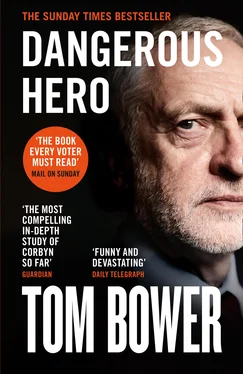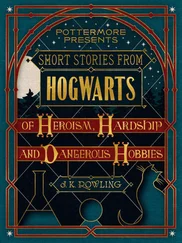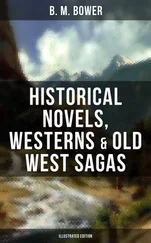1 ...7 8 9 11 12 13 ...21 The one odd note was Corbyn’s parsimony. Ever since he had witnessed the treatment of farm animals in Shropshire, he had been a vegetarian. In addition, he rarely drank, and did not smoke, go to the cinema, watch any sport or enjoy any social activity, so he had little in common with most members. His one concession to frivolity was to sing Irish protest songs in an Irish pub. Commitment to the reunification of Ireland was not wholly outlandish at the time. In March 1971 Harold Wilson had flown to Dublin to speak to the IRA’s leaders about peace and a planned transition to a united Ireland, and he later welcomed them to his home in Buckinghamshire. The former prime minister, however, received no credit for that initiative from Corbyn, who shared his fellow members’ anger at what he saw as Wilson’s betrayal of socialism during his last government. Unlike Corbyn, Wilson was not dedicated to hastening the imminent collapse of capitalism. Rather, as ‘the principal apostle of cynicism’, he was blamed for ‘too great a number of tawdry compromises [which] pollutes the atmosphere of politics’.
Like others on the left, Corbyn was not taken in by Wilson’s compact with the trade unions, and in 1973 he joined the new Campaign for Labour Party Democracy, an organisation that reflected his own commitment to establish a communist society. Thereafter his ideals never changed. To secure victory in the class war, he embraced the mantra of Tony Benn, at that time the rising star of Labour’s parliamentary radicals, to encourage direct action by workers on the streets and in workplaces to establish what the left called ‘industrial democracy’. Benn had just read The Communist Manifesto , and had become passionate about the overthrow of capitalism and its replacement by a Utopian, classless society, a mystical world. In this vision, the economy would be nationalised without compensation. That would include all the major industries, banks and property corporations. To turn Labour into the agent of that revolution, Corbyn adopted Benn’s rallying cry: ‘There are no enemies on the left.’ Their only adversaries were capitalists.
Douglas Eden, a polytechnic lecturer and a member of the Hornsey Labour Party, watched as Corbyn manoeuvred patiently to secure control over the branch. ‘In his carefully self-controlled way,’ said Eden with bitter admiration, ‘he presented himself to the lower orders of society, the vulnerable and inadequate people who felt indebted to him, as working-class. Once he got power, he dominated the branch and got their votes.’ One of the early casualties was the branch’s moderate chairman Andrew McIntosh, who Corbyn eased out. ‘Andrew didn’t learn his lesson,’ recalled Eden, who openly described Corbyn to the Labour Party’s headquarters as ‘a patrician from a wealthy background’. In revenge, Corbyn marked Eden for similar treatment – an official complaint to force his expulsion.
By late 1973, Corbyn felt emboldened. The tailors’ union moved its headquarters out of London, so he resigned and moved on to become a researcher for Tony Banks (later MP for Newham North-West) at the Amalgamated Engineering Union (AUEW), one of Britain’s most powerful associations, with nearly 1.5 million members. Banks apparently assumed that the well-spoken ex-grammar schoolboy could produce the required research. Corbyn’s self-esteem and confidence rose, as did his salary. He would later boast that he even organised a picket of striking AUEW workers outside their own headquarters against the union’s moderate leadership.
In September 1973 Salvador Allende was killed by the Chilean military, supported by the CIA. Washington’s involvement aroused worldwide outrage. Naturally, Corbyn demonstrated against the CIA’s conspiracies. His antagonism would be justified after Senator Frank Church delivered volumes of evidence to Congress in Washington in 1976 about the CIA’s undercover operations. That, combined with the earlier revelations in what became known as the Pentagon Papers of the lies told by President Johnson and others about American involvement in Vietnam, and the collapse of Richard Nixon’s presidency after Watergate, strengthened Corbyn’s loathing of American influence. And then British intelligence, frustrated by a ferocious IRA bombing campaign, was exposed for torturing the innocent as well as the guilty in its attempts to identify murderers in Ulster. The eventual consequences of those sensational disclosures were unpredictable.
On 6 October, while Israelis were observing Yom Kippur, the three neighbouring Arab states, Egypt, Syria, and Jordan, launched a surprise invasion intended to drive the Jews into the sea. After a fierce nineteen-day war, the intruders were routed. Any chance for a peace settlement between Israel and the Arabs was lost. Days later, Opec, the cartel representing the world’s dominant oil producers, quadrupled its prices. Global mayhem followed. Emboldened by the financial squeeze on Britain, the country’s miners sensed another opportunity to overthrow Heath. The government’s latest 16.5 per cent pay offer was rejected, and an overtime ban imposed. As ‘flying pickets’ dispatched by Scargill prevented coal deliveries to the power stations, Britain’s economy suffered, and by year’s end the miners were out on strike. With electricity supplies cut, Heath ordered industry to work a three-day week. Just as in wartime, streets were dark, offices were unheated and unlit, and ration books were needed to buy petrol. TV broadcasts finished early, and unemployment soared. A Tory government was overseeing a nightmare. In Scotland, shipbuilders on the Upper Clyde occupied their yards, and a wave of strikes immobilised the car industry. Left-wingers gleefully anticipated the collapse of capitalism. Tariq Ali of the International Marxist Group (IMG), Gerry Healy, a Trotskyist who would head the Workers Revolutionary Party (WRP), and other far-left groups demonstrated to advance the revolution. Predictions were made that, just as anti-Marxists had overthrown Allende, so Heath would be toppled by the masses.
To save his government, Heath called an election for February 1974, posing the question ‘Who Governs Britain?’ The Tories were expected to win a landslide against a Labour election manifesto that promised ‘a fundamental and irreversible shift of wealth and power’. Corbyn’s role in that campaign was to prove decisive for his own future. Ignoring his obligations at the AUEW, he worked indefatigably as the agent for Irving Kuczynski, Labour’s candidate in Hornsey, described by the Tories as ‘communist-backed’, against the sitting Tory MP Hugh Rossi, a staunch Roman Catholic who was to be a junior minister under both Heath and Margaret Thatcher. Corbyn flooded the constituency with party workers, knocking on every door and posting leaflets for a candidate he did not particularly like. In the process, he himself was transformed. The unsocial outsider formerly employed by the tailors’ union had become an energetic, effective and popular organiser, utterly committed to scoring an electoral triumph.
In the midst of the campaign, officials employed by a government pay board, a socialist quango, ruled that the miners’ pay claim was justified by Lord Wilberforce’s inquiry in 1972. As a result of the chaos that ensued, the electorate turned. Angered that the deprivations caused by the three-day week – including shortages of petrol, sugar and bread, and hospitals without clean bed sheets – was all apparently pointless, the electorate became incensed with Heath. It was not only his cack-handed management of the economy: asked by a journalist to name his favourite dish, he had tactlessly replied, ‘Lobster Thermidor with two wine sauces.’ Harold Wilson, asked the same question, chose Cornish pasties with brown sauce.
Читать дальше










